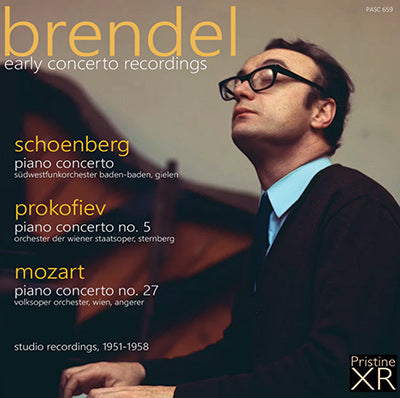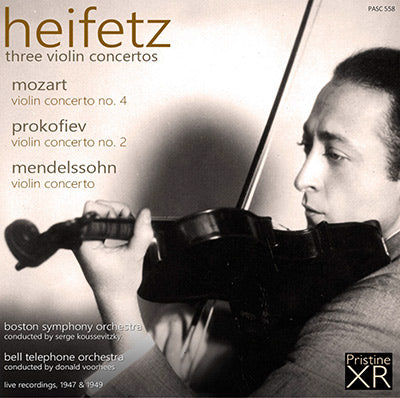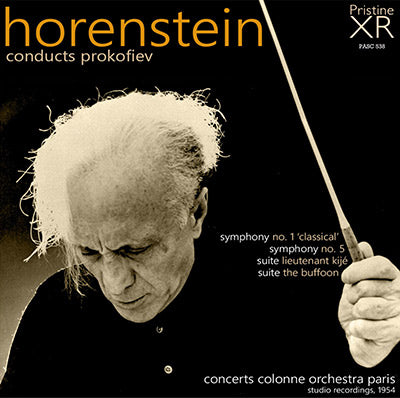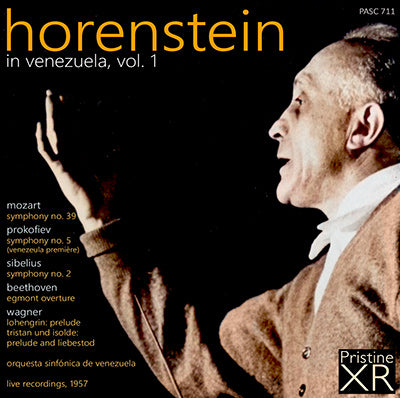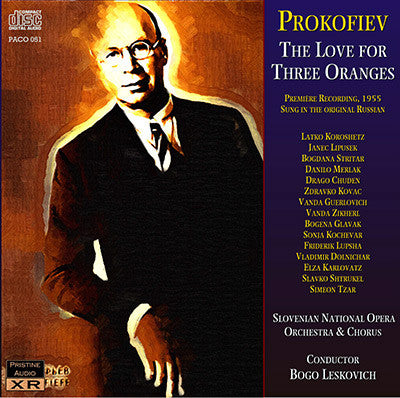Prokofiev
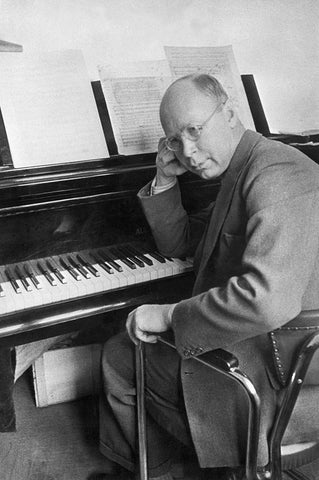
A graduate of the St Petersburg Conservatory, Prokofiev initially made his name as an iconoclastic composer-pianist, achieving notoriety with a series of ferociously dissonant and virtuosic works for his instrument, including his first two piano concertos. In 1915, Prokofiev made a decisive break from the standard composer-pianist category with his orchestral Scythian Suite, compiled from music originally composed for a ballet commissioned by Sergei Diaghilev of the Ballets Russes. Diaghilev commissioned three further ballets from Prokofiev—Chout, Le pas d'acier and The Prodigal Son—which at the time of their original production all caused a sensation among both critics and colleagues. Prokofiev's greatest interest, however, was opera, and he composed several works in that genre, including The Gambler and The Fiery Angel. Prokofiev's one operatic success during his lifetime was The Love for Three Oranges, composed for the Chicago Opera and subsequently performed over the following decade in Europe and Russia.
After the Revolution of 1917, Prokofiev left Russia with the official blessing of the Soviet minister Anatoly Lunacharsky, and resided in the United States, then Germany, then Paris, making his living as a composer, pianist and conductor. During that time, he married a Spanish singer, Carolina (Lina) Codina, with whom he had two sons. In the early 1930s, the Great Depression diminished opportunities for Prokofiev's ballets and operas to be staged in America and western Europe. Prokofiev, who regarded himself as composer foremost, resented the time taken by touring as a pianist, and increasingly turned to the Soviet Union for commissions of new music; in 1936, he finally returned to his homeland with his family. He enjoyed some success there – notably with Lieutenant Kijé, Peter and the Wolf, Romeo and Juliet, and perhaps above all with Alexander Nevsky.
The Nazi invasion of the USSR spurred him to compose his most ambitious work, an operatic version of Leo Tolstoy's War and Peace. In 1948, Prokofiev was attacked for producing "anti-democratic formalism." Nevertheless, he enjoyed personal and artistic support from a new generation of Russian performers, notably Sviatoslav Richter and Mstislav Rostropovich: he wrote his ninth piano sonata for the former and his Symphony-Concerto for the latter.

Prokofiev
SCHOENBERG Piano Concerto, Op. 42
PROKOFIEV Piano Concerto No. 5 in G major, Op.55
MOZART Piano Concerto No. 27 in B-flat major, K.595
Studio recordings, 1951-58
Total duration: 74:54
Alfred Brendel, piano
Südwestfunkorchester Baden-Baden, Gielen
Orchester Der Wiener Staatsoper, Sternberg
Volksoper Wien Orchester, Angerer
MOZART Violin Concerto No. 4
PROKOFIEV Violin Concerto No. 2
MENDELSSOHN Violin Concerto
Live recordings, 1947/49
Total duration: 68:30
Jascha Heifetz, violin
Boston Symphony Orchestra
conducted by Serge Koussevitzky
Bell Telephone Orchestra
conducted by Donald Voorhees
PROKOFIEV Symphony No. 1'Classical'
PROKOFIEV Symphony No. 5
PROKOFIEV Lieutenant Kijé Suite
PROKOFIEV Suite from The Buffoon
Studio recordings, 1954
Total duration: 1hr 49:24
Concerts Colonne Orchestra Paris
conducted by Jascha Horenstein
MOZART Symphony No. 39
PROKOFIEV Symphony No. 5
SIBELIUS Symphony No. 2
BEETHOVEN Egmont Overture
WAGNER Lohengrin - Prelude
WAGNER Tristan und Isolde - Prelude and Liebestod
Live recordings, 1957
Total duration: 2hr 29:07
Orquesta Sinfónica de Venezuela
conducted by Jascha Horenstein
Studio recording from 1955
Total duration: 1hr 48:41
conductor Bogo Leskovich
PROKOFIEV Violin Concerto No. 2
SHOSTAKOVICH Symphony No. 5
Studio recordings, 1952
Total duration: 70:53
Zino Francescatti, violin
Philharmonic-Symphony Orchestra of New York
conducted by Dmitri Mitropoulos
-
Previous
- Page 1 of 4
- Next

